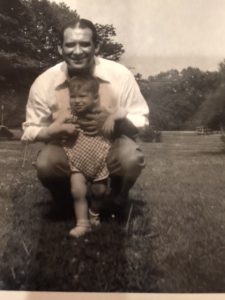One of the first things that I learned as a trial lawyer is that I should be educating, advising and litigating for my client. For that to happen, I need to know the same things that we were all taught as young children. What happened? When did it happen? Where did it happen? Who knows what happened? Why did it happen? And most importantly, what do you expect me to do for you? So with that, let’s explore all the areas of law that a work injury can spread to.
The Worst Day of Your Life
As part of your work day, you are asked by your branch manager to drive from your Dupont Circle worksite to the Vienna, Virginia, office to cover for a sick colleague. As you discuss this with your boss, you let her know that you have a conference call with the Atlanta office at 1 p.m. She tells you no worries; you should attend by telephone on your way to Vienna. That sounds like a plan, and before you leave, you check in with your significant other who is on their way to a job interview since they have been out of work for the last six months. Oh, and you send a text to your son that you will watch his game on Game Changer, since there will be no way you will make it back home to Maryland in time for his game. Just another day in your life, and it can’t end soon enough, you think to yourself. However, somewhere west of Falls Church, Virginia, while relaying the data to the Atlanta office, something happens. The next thing you see is your significant other holding your hand in the hospital. You are told that you are lucky to be alive because your car looks like an accordion. The tractor trailer that crashed into your car also hit another car, and that driver was not so lucky. As you try to piece this together, you notice the pins and rods sticking out of your ankle, and your back and head are throbbing with pain. You ask your significant other, what are we going to do? Unfortunately, this kind of day plays out all too frequently. As a trial lawyer, my sole goal is to try to help you put your life together again through the use of the laws that exist to protect you and everyone when this happens. So, let’s begin.
Let’s examine what happened to you. We know from the discussions at the hospital that you were involved in a vehicle crash and that your injuries were caused by that crash. There are many ways to investigate how this crash happened. We can examine the police report, the first responders’ notes and the hospital records for x-rays taken of body parts that you might not know are injured. These are just some of the initial steps I take to make sure I have a basic understanding as to how your life was changed that day.
Let’s examine when it happened to you. We know from the arrival of the first responders that your life was changed at 1:32 p.m. We know from the examination of your phone records that you were on a work call to Atlanta at the time of the crash. We know from your car data, as well as the surrounding road cameras, that you were not speeding and did not leave your lane. We also know from the letters we sent out to the company of the truck driver that they cannot dispose of the phone records or other communications that may have been taking place at the time of the crash or it will be held against them later.
Let’s examined where it happened. We know from the road cameras, towing reports, police reports and reconstruction reports (as you recall, the other car driver was not so lucky) and hospital reports that the crash happened in Falls Church, Virginia.
Let’s examine who knows what happened. We know from the investigation so far that your colleagues in Atlanta heard the crash. We know from the various reports by police that other drivers witnessed the crash. We know from the hospital that your significant other was called to the hospital and given a description of what happened, as was your boss. You also found out that statements were given to all the insurance companies involved.
Let’s examine why it happened. We know from our investigation so far that you were not the cause of this crash. However, that is not the full picture. We also have to know why your injuries happened as a result of the crash. I need to examine not only all the medical reports and tests from the hospital, but also all the treatment reports from the doctors you will need to see and pay to recover from your injuries.
How a Lawyer That Cares Protects You
As a trial lawyer, I have a pretty good idea of why injuries happen, and it usually never starts with “I meant to do that.” The fact of the matter is that all injuries can be prevented—it’s just a question of when it could have been prevented and did the person or entity want to invest the time or money it would take to prevent the injury. Now join me on a journey to put your life together again through the laws that may be available to you.
I know of only two ways that I, as a personal injury lawyer, can put your life together again under the laws: medical treatment and money. I put them in that order because if I take care of your needs, the money will take care of itself. Your first cause of action to rectify the harms brought to you and your family is to pursue a negligence action against the responsible parties. We look at many things when considering who to hold responsible for your harms, including where should we hold those parties responsible. The responsible parties to take care of you medically and financially can be the driver of the truck, the company who employs the driver of the truck, the parties responsible for the design of the roadway you were on, your employer or your own car insurance, among others. In your case, we will decide together which state or federal court we should hold the parties responsible in so that we can put your life together again. In a negligence action, the laws are designed to address both your economic and non-economic harms (pain and suffering), and depending on the state, we will want to pursue it in a court that provides the fullest recovery. However, this will take a considerable period of time, and you have bills to pay and a life to continue while you receive medical care.
We should also look at what other laws there are to protect you. Your injury arose out of and in the course of your employment, and therefore the workers’ compensation laws are available to help you medically and financially. While you are recovering and not able to work, the workers’ compensation laws of at least the District of Columbia, and maybe the surrounding DMV, will provide you with lifetime medical care at the expense of your employer’s workers’ compensation insurance, as well as tax-free weekly income replacement benefits to help financially during your recovery. This is an important law that is sometimes overlooked, but for injuries at work it is invaluable to you, since your employer is required to purchase them as part of your employee benefits.
If we believe that this life changing injury has permanently restricted you from engaging in certain job duties of your employment, you may have rights under the American with Disabilities Act. It is not okay that your career and your family’s right to happiness has been put in jeopardy as a result of this injury. Although a personal injury attorney may not specifically handle this part of your case, he or she should be able to educate as to who may be able to help.
If we believe that this life changing injury has completely eliminated your ability to ever return to gainful employment, you may have access to medical care and financial assistance under the social security laws of your state. This may include a claim for social security disability benefits which you have been paying into because of your employment. Once again, a personal injury attorney should be able to educate you as to what steps to take to protect this right. You may also have been prudent enough to have purchased a disability policy in case of your inability to work, or even your employer, as part of your employment, has a disability policy on your behalf that you could turn to for medical and financial assistance.
What You Should Expect
Now that you have been educated about your rights, you need to be advised as to what your best course is to put your life back together. We will discuss not only the time and effort it will take, but a personal injury will be open and honest about what it will cost you. In most cases, it will cost you nothing as personal injury cases are handled on a contingency basis. This basically means that your personal injury lawyer will not get paid unless you get paid. As all of us are aware, if it’s not worth fighting for, then it is not worth pursuing. I never have represented a person with a life changing injury and heard them say, “My life and my family’s life is not worth fighting for.”
At each step of the process, timely advice is the key to putting your life back together. Therefore, communication with your personal injury lawyer is a sure sign that they care about you. This is all about you. Without you, there is no personal injury case. This relationship is the foundation on which your recovery will begin.
As the saying, “put up or shut up” implies, we are going to have to fight for your rights. Your life changing injury happened, and somebody has to say, “I was the responsible party.” As simple as it is to say, I’m sorry for what I have done, it’s not that simple when money and reputation are involved. In order to put your life back together again, a personal injury lawyer may need to go to trial to have a jury of your peers hold the company of the truck driver responsible, or to force your underinsured insurance policy to pay if they refuse to pay you the benefits you purchased from them. However you choose your fight and against whom you fight, make no doubt about it, you will need a personal injury lawyer to lead the way.
As I said earlier, one of the first things I learned many years ago about what a personal injury lawyer should do: Educate, Advise, and Litigate for your clients, I have spent over 20 years of my life discovering that those are the tools of a personal injury lawyer. I have also discovered that in order to be a personal injury lawyer, I must always strive to be:
A lawyer that will always have time to listen to you. A lawyer that will always have time to put your interest first. A lawyer that will always fight for you.








